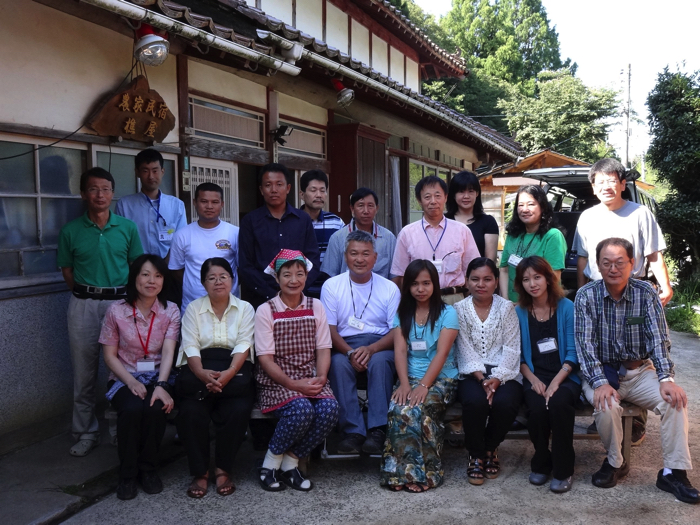- Project Leader : Ohnishi Nobuhiro (Faculty of Bioenvironmental Science, Kyoto Gakuen University)
- Collaborators : Ando Kazuo (Center for Southeast Asian Studies, Kyoto University)
- : Yajima Kichiji (Center for Southeast Asian Studies, Kyoto University)
- : Minamide Kazuyo (Department of International Studies and Liberal Arts, St.Andrew’s University)
- : Tatsumi Kazuko (Extension Center, Yamaguchi University)
- : Nakano Keiji (Product Production Term, Hozucho Jichi Association)
- : Tanaka Toyofumi (NPO SHUO OSHIMA Natural Feeling Experience Club)
- : Khin Oo (Yezin University of Agriculture)
- : Akkel Ali (Joint Rural Development Sangstha)
Outline of Research
Problems such as the disappearance of native culture and vitality of rural communities in Japan have also been an issue in developing Asian countries of due to the influence of globalization. In Japan, recently, peoples’ organizations such as NPOs have just started an alternative rural development approach based on their wisdom and pride to “live out our lives in our rural communities.” This research will invite the counterparts who share a concern in rural development in communities from Bangladesh and Myanmar to conduct practice-oriented Area Studies through mutual learning in Japan so that they can exchange their experiences and opinions with Japanese counterparts to search for a solution to problems. Prof. Khin Oo will be invited as a visiting research fellow of the CSEAS in 2011 to conduct her study on the application of alternative rural development approaches to agricultural extensions in Myanmar.
Description
The objective of this research is as follows. Invited counterparts who are involved in rural development in communities in Bangladesh and Myanmar will conduct practice-oriented Area Studies through mutual learning workshops and PLA in rural Japan with Japanese counterparts. Though this, they will learn an alternative rural development approach based on their wisdom and pride to “live out our lives in our rural communities” and exchange their experiences and opinions.
The significance and expected results of this research is to develop “Area Studies as Practical Learning” as a case of action research so that scholars can lead the creation and practice of an alternative paradigm of Area Studies such as “Co-working Study.” This research will conduct PLA and hold a grass-roots international workshop in rural Japan alongside counterparts from Bangladesh, Myanmar and Japan so that they can compare their experiences and establish a grass-roots network among people’s organizations, NGOs, NPOs and researchers participating in this action research. As a result, it is hoped that a new door in Area Studies will be opened in a practical way.


